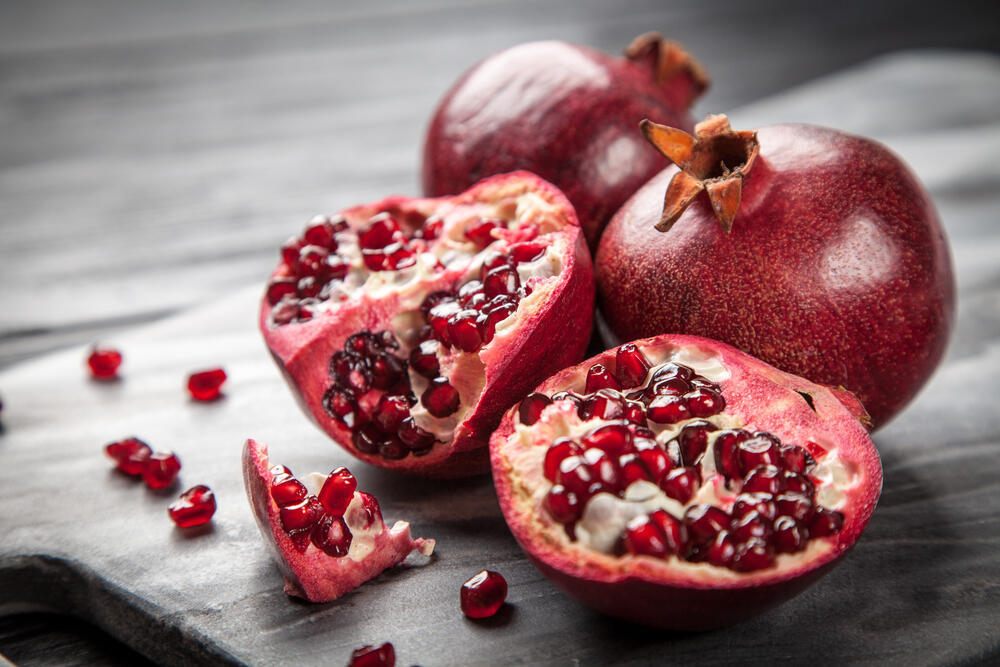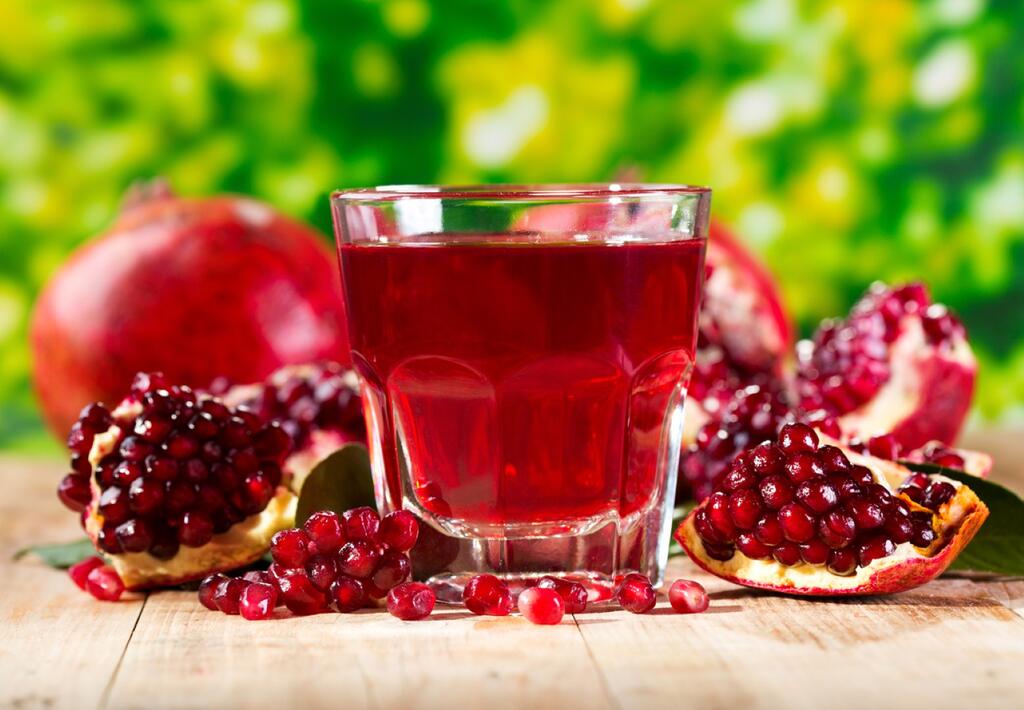For most of us, pomegranates are a once-a-year treat for Rosh Hashanah. But research suggests they deserve a permanent spot in our diets.
Among their many health benefits: lowering blood pressure, strengthening skin, and protecting the heart. Surprisingly, the parts we usually discard, the peel and the white seeds, contain the highest concentration of nutrients.
Pomegranate has been part of human culture for thousands of years, symbolizing abundance, fertility, and new beginnings. Each year, it returns to center stage on Rosh Hashanah tables, wrapped in vibrant red and bursting with glistening seeds that evoke tradition. But beyond its symbolic appeal lies a trove of nutritional and medicinal properties.
In recent years, the pomegranate has become one of the most extensively studied fruits, earning a place among other so-called superfoods as science continues to uncover its powerful qualities.
What’s especially surprising is that the parts pushed aside, the peel and the white seeds, hold the fruit’s most potent health benefits.
In ancient cultures like Persia and India, pomegranate peel was widely used to treat intestinal illnesses, infections, and inflammation.
Historical medical texts describe powdered dried peel as a natural remedy for diarrhea and as a mouth rinse to strengthen gums. In Indian Ayurvedic medicine, the peel was used in treatments for both internal and external infections.
Modern research backs many of these traditional practices. Pomegranate peel is particularly rich in polyphenols and tannins, powerful antioxidants found in much higher concentrations than in the seeds.
These compounds have been shown to inhibit the spread of cancer cells in lab studies, reduce inflammation, and fight bacterial growth.
The supplement and cosmetics industries have already taken notice of the results, and pomegranate peel extract now appears in capsules, creams, and facial masks designed to protect the skin and combat oxidative damage.
If the peel is packed with antioxidants, then the hard white seeds inside the fruit contain a rare oil with equally impressive benefits: pomegranate seed oil. This oil is rich in punicic acid, a unique fatty acid that has been the subject of numerous studies in recent years.
Findings suggest it helps reduce LDL (“bad”) cholesterol, improves vascular elasticity, and protects heart muscle.
In dermatology, pomegranate seed oil is one of the most sought-after ingredients thanks to its ability to slow aging and defend against UV radiation.
The seeds themselves also provide dietary fiber that supports healthy digestion and nourishes the gut microbiome, the community of beneficial bacteria in the intestines. So even the part we often find bothersome in our teeth turns out to be a nutritional powerhouse.
But it doesn’t end with the peel and seeds. A growing body of scientific evidence highlights the powerful health benefits of pomegranate juice and the whole fruit.
Clinical studies have shown that drinking pomegranate juice can help lower blood pressure and slow the progression of atherosclerosis, a major risk factor for cardiovascular disease.
Pomegranate’s active compounds, especially ellagic acids, are potent antioxidants that may also protect brain cells. Preliminary lab studies have indicated a positive impact on memory and cognitive function.
The fruit also helps reduce chronic inflammation, boosts immune function, and promotes a balanced gut microbiome.
Early clinical findings suggest that pomegranate compounds break down in the gut into so-called “anti-aging metabolites,” particularly urolithin A, which may enhance mitochondrial function (the cell’s energy powerhouse) and support muscle health.
Even the skin benefits: topical use of pomegranate juice or seed oil has been shown to improve elasticity, protect against UV damage, and help maintain a youthful appearance. It’s no wonder global cosmetics companies have embraced pomegranate seed oil, incorporating it into high-end serums and therapeutic creams.
In short, the pomegranate delivers a broad range of health advantages, from cardiovascular support to brain health, digestion, skin care, and immune balance.
For those wondering how to enjoy the benefits in daily life, simple steps are enough: brew tea from dried peel for an antioxidant boost, drizzle a teaspoon of seed oil over a salad or smoothie or generously sprinkle fresh seeds on a green salad.
These three easy uses show how a fruit that starts as a holiday symbol can become part of a mindful, healthy routine.
Source link


